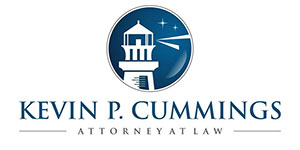
If your family member or loved one has died and left a will, there may likely be the need to submit to the jurisdiction of the probate courts to transfer assets from the estate to named beneficiaries. Depending on the size of the estate, the personalities of the beneficiaries or heirs, or the specific language of the will itself, it is always a good idea to have an experienced probate attorney evaluate the estate and estate documents and advise you as to the probate process.
Kevin P. Cummings PLC has the background in estate planning and probate to advise a family member or personal representative on how to best handle the distribution of property to beneficiaries, while not running afoul of the probate code. Usually there is a personal representative nominated within the will to handle administration of the estate, but if not, the probate court will select a personal representative for this role. Once this individual has been nominated, they act in a fiduciary capacity and are tasked with the very important job of gathering assets of the estate, paying off its liabilities, and distributing remaining assets to named beneficiaries. This job can often be time consuming and sometimes thankless. However, it is a very important job. Our firm can help make this process easier.
The Probate Process Simplified
Depending on the size of the estate or the number of beneficiaries, probate does not necessarily have to be a complex or difficult process, but there are specific legal requirements that you must follow as a fiduciary. The primary reason for probate is to formally transfer ownership of the deceased’s assets to the heirs named in the will, or via the terms of the probate code. The transfer is overseen and validated by the probate court to ensure that the intent of the will is followed, and that no parties interfere with the distribution. As personal representative, you have a fiduciary duty to carry out the instructions in the will, and to make sure that specific property is transferred to the designated heir.
When is Probate Not Required?
There are exceptions to the probate requirement for any property that is already designated or owned jointly with another person, such as:
- Joint tenancies in real estate.
- Property owned with the surviving spouse.
- Transfers upon death.
- Joint accounts with rights of survivorship.
- Assets held in trusts.
- Life insurance with designated beneficiaries in the policy.
These types of exceptions may reduce the value of the estate so that it qualifies for a simplified probate or avoids the requirement altogether. Smaller estates with little by way of gross assets may qualify for simplified probate, where delivery of property to the spouse and heirs can be expedited by the court. Assets such as bank accounts can sometimes be claimed by affidavit, without the need for a formal probate to be completed. There is a similar process for vehicles in some cases where the estate is small. At Kevin P. Cummings PLC, we can help you understand when these situations may apply and can prepare the correct documents that will ease the transfer of property outside of probate.
Formal Probate Requirements
If the estate of your family member does not qualify for these alternatives to traditional probate, then the formal court process will be required. This can take six months to a year (or longer), depending on the complexity and size of the estate. In the event of a will contest or probate litigation, this time frame could be extended and if that occurs, we are prepared to represent you and the estate to prove the validity of the will.
During probate, your duties as executor will include:
- Making an inventory of all estate assets.
- Maintaining the security of assets including insurance.
- Obtaining property appraisals and business valuations.
- Payment of taxes, debts and bills for the estate.
- Distributing the property as directed by the will and approved by the court.
Because of these responsibilities many personal representatives and executors choose to have an attorney assist them with these potentially complicated tasks.
Kevin P. Cummings PLC: Brighton and Ann Arbor Probate Attorney
Kevin P. Cummings is a probate attorney who is ready to help you with your role as personal representative and executor and make sure that all probate rules are followed under state law. We can advise you on the specific processes needed for transferring title and possession of property and ensure that you fulfill your fiduciary duty as required by law. Please contact us for a free consultation on how we can be at your side to help you throughout the entire probate process.
